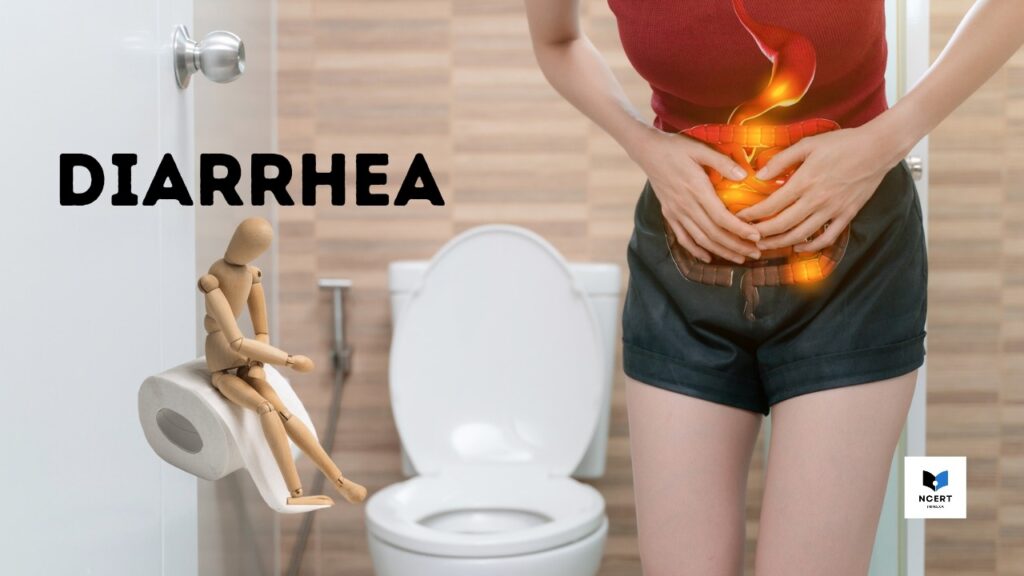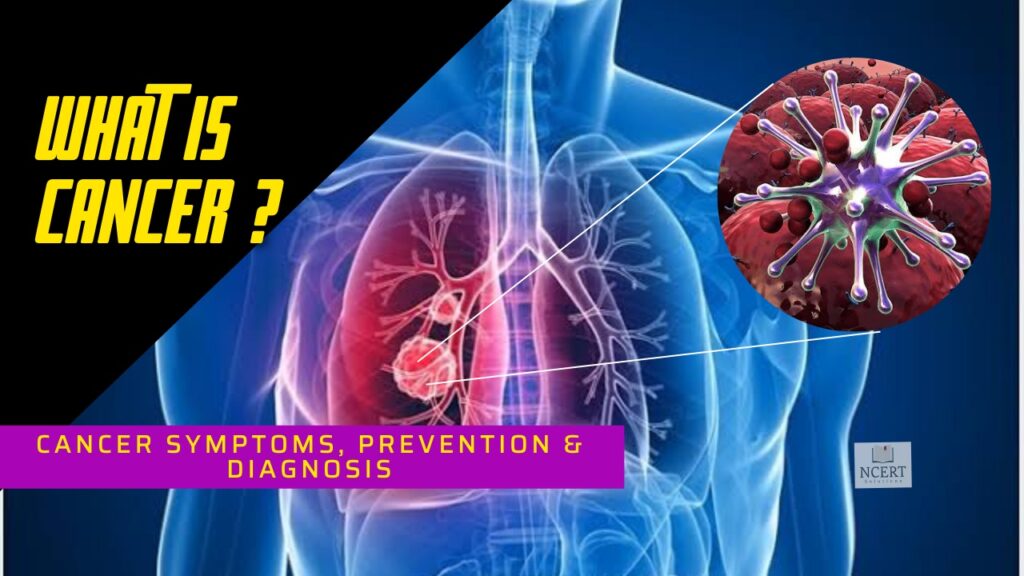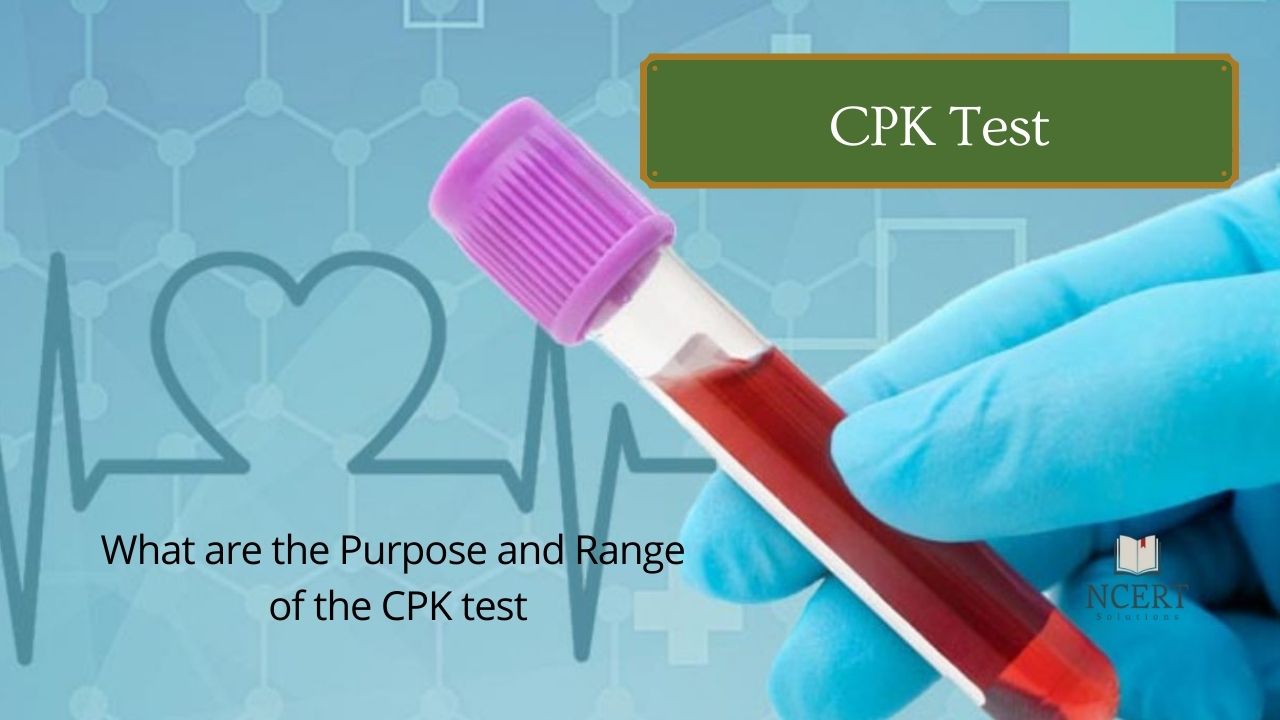Diarrhea or loose motions means loose, watery stools or the need for frequent bowel movements.
It usually lasts a few days and often gets better without any treatment. It can be acute or chronic.
Acute diarrhea occurs when it lasts for one to two days. It can be caused by a viral or bacterial infection, or it can also be caused by food poisoning.
It is said to be chronic when it lasts for at least four weeks. It is usually the result of some intestinal disease or disorder, such as celiac disease or Crohn’s disease.
Diarrhea Symptoms
There are many different symptoms of diarrhea. You may have only one or several of these symptoms. Symptoms depend on the cause of loose motion.
It is common to have one or more of the following symptoms:
- Due to diarrhea, too much water is lost from the body which can lead to dehydration.
- It may cause nausea and vomiting.
- This can cause pain and bloat in your abdomen.
- There is a strong urge to go to the toilet again and again.
- Fever and headache also occur in severe cases.
- Losing a lot of water and salt from the body can lead to weakness, which can lead to a feeling of lethargy and inactivity.
- Excessive dehydration can lead to dry skin and lips.
Causes
Diarrhea can be caused by many diseases or conditions. Possible causes of diarrhea include:
- Food intolerance, such as lactose intolerance
- Food allergies
- Drug reaction
- Viral infection
- Bacterial infection
- Intestinal infection
- Parasitic infection
- Stomach or gallbladder surgery
Bacterial infections caused by Salmonella or E. coli are also common.
Chronic diarrhea can be a symptom of a more serious condition such as irritable bowel syndrome or inflammatory bowel disease.
Prevention
Although diarrhea can be caused by many reasons, there are several things you can do to prevent it:
- Washing the area where you cook more often can help prevent diarrhea caused by food poisoning.
- Serve immediately after preparing food
- Put leftover food in the fridge immediately
- If you have diarrhea due to a bacterial or viral infection, you can prevent spreading the infection to others by washing your hands frequently.
Diagnosis
In addition to doing a physical exam, the doctor may order certain tests to determine why diarrhea is occurring. They include:
Blood Tests – The CBC test can help determine for sure why diarrhea is occurring.
Stool test – Your doctor may order a stool test to determine whether bacteria or parasites are causing diarrhea.
Colonoscopy – If no obvious cause is found for persistent diarrhea, the doctor may recommend a colonoscopy to look at the inner lining of the stomach and recommend a biopsy. In both procedures, a thin, lighted tube with a lens on the end is used to look inside your abdomen.
Treatment
Mild cases of acute diarrhea may get better without treatment. In cases of persistent or chronic diarrhea (long-standing diarrhea), the treatment for diarrhea and its symptoms are as follows:
Overcoming Dehydration
In all cases of diarrhea, the first important step in treatment is to rehydrate:
- An easy way to relieve dehydration is to increase your fluid intake. Oral Rehydration Solution (ORS) – contains salt and glucose. This solution is easily available everywhere.
Right Nutrition
There are certain foods and drinks that may benefit diarrhea, such as:
- Consume clear fluids, such as fruit juices (without added sugar), and replace the lost water with at least one cup of water after a bowel movement.
- Do not drink water during meals.
- Eat potassium-rich foods and fluids – eg fruit juice, potatoes (without the skin), bananas
- Consume sodium-rich foods and liquids, such as soups, sports drinks, snacks
- Eat foods rich in soluble fiber, such as bananas, rice, and oatmeal, to thicken stools
Limit certain foods that can trigger diarrhea. such as:
- Creamed food
- Fried food
- Sweet food
- Sugar-free chewing gum
- Mint
- Sweet cherry
- Dried plum
- Caffeinated drinks
- Medicines
- Dairy Products
- Keep the amount of fructose low, which is found in fruit juices such as grapefruit, honey, dates, dried fruits, figs, soft drinks like Coke and Pepsi, dried plums
Probiotics
Probiotics are available in capsules, tablets, powders, and liquids.
Probiotics – Online Products
Visit this page to view and order online Probiotics
NCERT Infrexa
- In children, it has been proven that probiotics can reduce diarrhea in one day.
- Probiotics may also help prevent “travelers’ diarrhea.”
- Antibiotic-associated diarrhea can be reduced with the use of probiotics.
Diarrhea Complications
Dehydration or lack of water in the body is most at risk when diarrhea occurs:
- Dehydration can occur when diarrhea leads to a lack of fluids and minerals (electrolytes) in the body – whether the patient is vomiting or not.
- Dehydration usually occurs in patients whose stools are more dilute.
- It is common in infants and children who get viral gastroenteritis or bacterial infection.
- Patients only experience thirst and dry mouth when there is mild dehydration.
- Orthostatic hypotension (fainting or light-headedness on standing) due to moderate to severe dehydration can cause low blood pressure, which can lead to low blood pressure.
Apart from this, there may be some other problems, such as:
- Less urine
- Severe weakness
- Trauma
- kidney failure
- Confusion
- Acidosis (too much acid in the blood)
- Coma may also occur
If it is prolonged or severe, there may be a mineral or electrolyte deficiency. In which electrolytes (minerals) are lost from water.
The most common deficiencies are sodium and potassium. Abnormalities of chloride and bicarbonate may also develop.
Lastly, frequent bowel movements can also irritate the pulp due to irritants present in the water in the stool.




